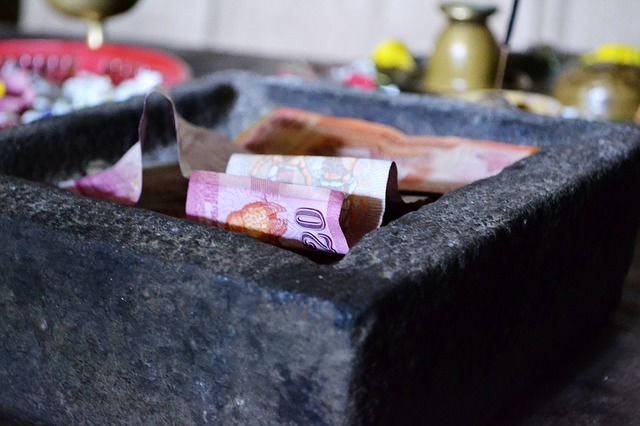I recently attended a workshop with an attractive title: “Understand your relationship with the energy of money.”
I was hoping for some insight into what was blocking me from living in greater abundance than I currently do, or to discover some secret that I wasn’t privy to.
Imagine my surprise when, in the very first group meditation, the facilitator asked me to visualize my father standing 30 feet away from me, and to record my very first reaction to his presence. I was asked to make a mental note of the emotions that I experienced, the bodily reactions that took place and my first overall instinctive response to seeing him.
When the meditation was over, unlike others, I wasn’t exactly jumping out of my chair to share my experience with the group. My relationship with my dad is distant at best. And even though there is some affection and a strong affinity, on a day-to-day basis we have little interaction with—or even tolerance for—one another.
We are both doing our own things, so to speak.
As others were sharing their experiences, I was wondering whether I had come to the wrong workshop, or misread what it was about. Just as I was about to settle in to receive some family constellation-based therapy, instead of advice on how to get richer, the facilitator dropped a big one on us.
He said, “Could it be possible that the way you think about your father is the same way you think about money?”
Boom! I was shot and my mind flooded with a million thoughts at once.
What do I think about money?
Simply put, my relationship with money is also detached. I don’t care that much if I have it, or if I don’t.
My husband often complains that I don’t look after material things well—my shoes don’t last, my bike doesn’t get a timely service and my gadgets break down too often.
Could I see parallels to my relationship with my father?
Yes.
Could others attending the workshop?
A big, resounding yes.
Apparently, how we perceive money or abundance in life is greatly influenced by how we perceive our paternal relationship in our formative years (aged seven to 14).
Don’t get me wrong—this influence has little to do with our father’s relationship with money and a lot more to do with their parental bonding with us.
Some people experienced strictness from their father and they find themselves to be very particular about keeping strict financial records. They don’t allow themselves to indulge in “wasteful” spending.
Others experienced immense joy at the thought of their dad and some regret that they haven’t done enough for him. Even though they love having money and admit that it gives them happiness, they also often feel that it’s not enough.
This is a worthwhile exercise for all of us to do to see the parallels:
Think about your relationship with your father. How do you feel about it? (Contemplate for a few minutes.)
Now do the same with money.
Be honest and thoughtful. Do you see any parallels?
Since the workshop, I have discussed this idea with many friends and they all experienced some aha moment by the end of the conversation.
But what if you didn’t have a father during those years? What if your mum was a single parent for whatever reason, or what if you grew up an orphan?
Think about the closest person to a father-figure you bonded with and the same will apply to him. It could be an elder sibling, an uncle or a mentor. The important connection is of the bond with someone who took charge of your household during those years.
Okay, now that this connection is established, what’s next?
Are we to understand that if we improve our relationship with our father, even today, it will impact how we associate with abundance?
Yes!
Whether physically or metaphysically, any inner work done in order to reconcile this fundamental relationship, if strained, will directly impact our wellbeing.
They say that a soul chooses which family to be born into, based on whether it has debts to pay or gifts to receive. It’s a soul’s karmic right to receive from its creators (parents). I suppose I have always believed that my soul chose these parents so that I could settle debts from past lives. However, according to what I’ve learned at the workshop, this realization itself will settle my debts and I can now allow my inner child to ask and receive.
I am beginning this year with an acknowledgement that it is time for me to work on my relationship with my father. After all, life is too short to leave it with such deep regrets.
And should I happen to get richer in the process, I will not be complaining.
~
Relephant:
How I Shifted my Relationship with Money in 30 Days.
Busting the Unhelpful Belief that Money Can’t Buy us Happiness.
~
Author: Madhuri Kudva
Assistant Editor: Hilda Carroll/Editor: Travis May
Photo: Pixabay


 Share on bsky
Share on bsky





Read 7 comments and reply